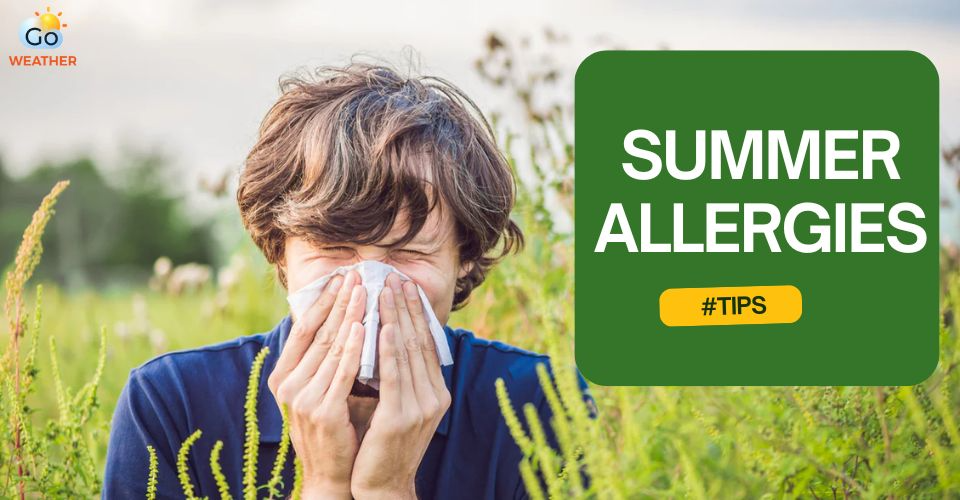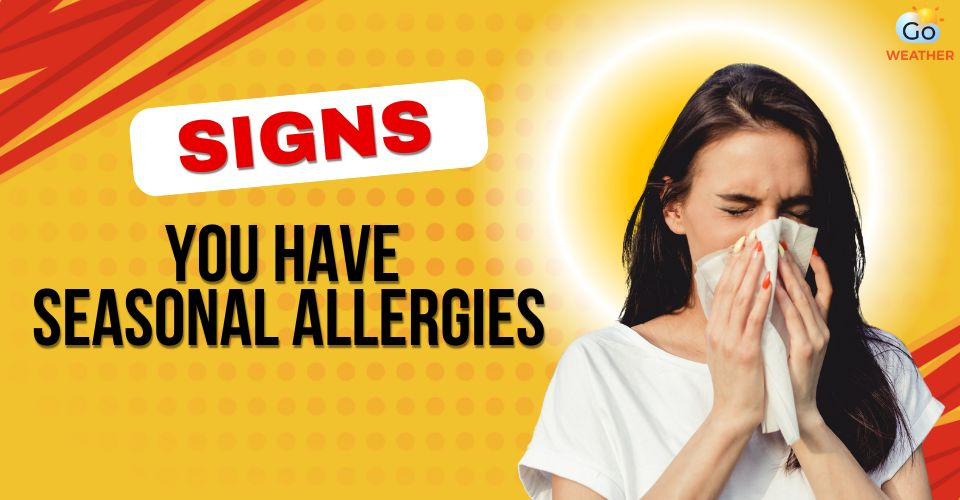5 Summer Season Diseases to Watch for + Practical Tips to Prevent
Summer is here, and with its unique unbearable temperature comes a myriad of diseases that can affect you or your loved ones. However, be aware of these 5 summer season diseases people quickly get. If you wish to have a vibrant season, it's essential to take precautions to keep these common diseases at bay. Let’s find out.
.jpg)
Most common diseases in summer season
Common Summer Season Diseases
Heat stroke
The first common summer season disease is heat stroke or hyperthermia, which happens when your body is overheated due to prolonged exposure to or physical exertion in high temperatures.
If you have heatstroke, you will need emergency treatment. Otherwise, your brain, heart, kidneys, and muscles can be damaged quickly or even be life-threatening.
.jpg)
Heat stroke is among diseases in summer and rainy season
Signs & symptoms
To realize heatstroke early, you need to take notice of the signs and symptoms, including:
-
High body temperature: When using a thermometer, your core body temperature is 104°F (40°C) or higher. This is the main sign of heatstroke
-
Unstable mental state or behavior: you can have a sign of confusion, agitation, slurred speech, irritability, delirium, seizures, and coma
-
Alteration in sweating: If you have heat stroke due to hot weather, your skin will feel hot and dry to the touch. However, if having a heatstroke due to strenuous exercise, your skin will be dry or slightly moist
-
Flushed skin: Your skin may turn red because of high body temperature. Read more: Skin diseases in summer season
-
Racing heart rate: Heat stress tremendously burdens your heart to reduce your body temperature
-
Others: Nausea and vomiting, Headache, Rapid breathing
.jpg)
Heatstroke happens when your body is overheated
How to prevent
Heatstroke is predictable and preventable. Let’s take these tips to prevent it in summertime:
-
Wear loose-fitting, lightweight clothing
-
Protect against sunburn
-
Drink enough water
-
Do not leave anyone in a parked car, especially children
-
Eat cool foods for hot weather, such as tomatoes, melon, berries, etc
-
Limit time spent working or exercising in the heat. If you still do a workout, you need to watch out for more weather tips for workout in summer
Food poisoning
Another featured disease in summer season is food poisoning. The warm and humid weather provides a fertile environment for bacterial growth, leading to food contamination.
Signs & symptoms
Food poisoning symptoms change differently due to the source of contamination. Most types of food poisoning cause the following signs and symptoms:
-
Nausea
-
Vomiting
-
Watery or bloody diarrhea
-
Abdominal pain and cramps
-
Fever
Patients can get symptoms within hours after eating the contaminated food or days or weeks later.
.jpg)
Food poisoning
How to prevent
To prevent food poisoning at home, you need to:
-
Wash your hands with soap or alcohol-based hand sanitizer before and after touching food
-
Separate raw foods with ready-to-eat foods to prevent cross-contamination
-
Cook foods to a safe, well-cooked temperature
-
Refrigerate or freeze perishable foods promptly within two hours of purchasing or preparing them
-
Defrost food safely
-
Throw poisoned food out when in doubt
-
Do not leave the cooked food outside overnight
Dehydration
People are also easily hydrated in summer. This common disease during summer occurs when the body loses more fluids than it absorbs.
.jpg)
Dehydration is one of the most common diseases caused in summer season
Signs & symptoms
Both adults and children who have dehydration often have symptoms such as:
-
Feeling thirsty
-
Dark yellow and strong-smelling pee
-
Feeling dizzy or lightheaded
-
Feeling tired, not want to do anything
-
Dry mouth, lips, and eyes
-
Pee little, less than 4 times a day
How to prevent
This illness is mainly caused by a lack of fluid in the body. Thus, drinking enough water is the best and quickest way to prevent it.
You should drink at least 1.5L of water daily or more, depending on your body condition and exercise intensity. You should drink pure water and also take in water through different means, such as fruit and vegetables.
.jpg)
Eat more food like fruits and vegetables
For instance, if you go on a picnic, take these picnic foods for hot weather. They contain ingredients that are high in water, such as tomatoes, cucumbers, berries, and watermelon.
Mumps
Mumps also worries people in hot weather because of the number of infected cases in children during peak summer. It is a viral infection affecting saliva-producing (salivary) glands near the ears.
Signs & symptoms
The primary signs of mumps are swollen salivary glands and the cheeks puffing out. Other signs and symptoms patient can have:
-
Pain swollen salivary glands on one or both sides of your face
-
Pain while chewing or swallowing
-
Fever
-
Headache
-
Muscle aches
-
Weakness and fatigue
-
Loss of appetite
.jpg)
Signs and symptoms of mumps
How to prevent
Fortunately, there is a vaccine for this common summer season disease. It is advised that everyone should take 2 doses of mumps vaccine and for children before entering school.
The best time to take the vaccine to get the most effective result is when you are an infant.
Furthermore, the mumps vaccine is usually given as a combined measles-mumps-rubella (MMR) vaccination, which contains the safest and most effective form of each vaccine. This combination protects us more from viruses.
The third dose of the mumps vaccine is not encouraged. A doctor can advise you to take it; however, you are in an area experiencing an outbreak.
.jpg)
Take MMR vaccine
Chicken Pox
Chickenpox is also one of the most common summer health problems.
The itchy blister rash appears 10 to 21 days after the virus is infected and takes 5 to 10 days to disappear.
Signs & symptoms
Some other signs may come one to two days before developing the rash include:
-
Fever
-
Loss of appetite
-
Headache
-
Tiredness and malaise
.jpg)
Chicken pox
Once the chickenpox rash appears, there are three phases to develop:
-
Pink or red bumps (papules) break out over several days
-
Vesicles form in about one day and then break themselves and leak
-
Crusts and scabs, which cover the broken blisters and take several more days to heal
How to prevent
Fortunately, there is a vaccine for Chickenpox. According to experts from the Centers for Disease Control and Prevention (CDC), nearly 98% of people who take 2 doses of the vaccine are entirely protected from the virus.
The remaining 98% who even get sick will be less damaged by chickenpox.
.jpg)
Take vaccination to protect from chicken pox
Other Summer Season Diseases
While summer is usually fun and leisure, certain health risks are associated with greater sun exposure, higher temperatures, and outdoor activities.
Here are some other frequent diseases in summer season you may catch throughout hot weather:
-
Sunburn
-
Typhoid
-
Heat rashes
-
Eye infections
-
Flu
-
Headaches
-
Diarrhea
-
Acne
.jpg)
There are many diseases of summer season
Tips to Avoid Common Summer Season Diseases
In addition to the methods mentioned earlier to prevent specific summer common diseases, consider the following advice to stay safe in hot weather:
-
Drink at least 8 glasses of water per day: If you dislike pure water, you can drink coconut water, buttermilk, or lemon water.
-
Choosing cool, lightweight, absorbent clothes: You should not wear dark or tight clothes because these types of clothes absorb more heat and make sweat difficult to emit. (Suggested: sunny weather outfits)
.jpg)
Tips to prevent common diseases in summer season
-
Protect yourself from heavy sunlight: Wear a hat and glasses, and apply sunscreen to avoid harmful UV light. Seek shade and rest if possible.
-
Washing your hands regularly: Follow the 10-step general hygiene rules while handling food or after going to the toilet. Furthermore, wash your hands before preparing food items to prevent contamination.
-
Preserve food properly: Keep food at the proper temperature to avoid rotten food and food poisoning.
-
Vaccination with MMR (measles, mumps, rubella): If you or your kid has not been vaccinated against these three infections, let’s get vaccinated as soon as possible.
-
Doing exercise regularly: It improves your immune system gradually and makes your body stronger to fight the attack of viruses or abnormal weather conditions.
-
Eating nutrient-dense foods: Some minor changes in eating habits can significantly impact. For example, switch from white rice to brown rice, replace sugary drinks with water, unsweetened tea, coffee, or snack on crunchy vegetables or nuts instead of chips.
.jpg)
Doing exercise regularly
Conclusion
Like other seasons, summer also comes with some troubles. However, if you know the symptoms and prevention of common summer season diseases like heart stroke, mumps, chicken pox, etc, summer will still be perfect for you.










0 Comments
Leave a Comment
Your email address will not be published. Required fields are marked *